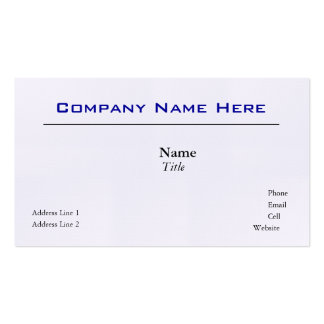There are plenty of content marketing “experts” out there. And, yes, I put the quotation marks there on purpose — and for good reason. That’s because there are people in every corner of the Web who THINK they know all about content marketing. The truth is, though, they’re either passing along misinformation they heard through the grapevine, or they’re downright lying to you.
If you hear any of the five following things, consider them to be content marketing lies that can do serious damage to your business.
1. “Guest blogging is dead.”
Look around the Web, and you’ll see a long line of misinformed sheep. Instead of understanding what Matt Cutts was REALLY saying when he blogged about the death of guest blogging, they took it to mean that ALL guest blogging is bad. (It’s not. Even Matt says so.) Then, they spread the misinformation like wildfire.
If you want to guest blog the RIGHT way, you’ve got to keep two things in mind — expertise and authority. Specifically, you’ve got to have the expertise to write a legitimately helpful and well-written post. Then, you’ve got to publish it on a site in your niche that’s a legitimate authority. Without those two things, you’re no better than the spammers Matt was attacking in his post.
2. “One great piece is enough.”
Rome wasn’t built in a day, and neither is a successful content marketing strategy. Even if the first piece you publish manages to go viral, you can’t stop there. That’s because a good content marketing strategy is designed to build a relationship between you and your readers. The last thing your readers want to see is a blog that never gets updated, a YouTube channel that’s collecting dust, or an email newsletter series that suddenly goes poof.
Consider content marketing to be the brainchild of quantity and quality. If you really want to succeed, you need a steady stream of high-quality stuff. That way, your readers will know that they can depend on you to keep them up to date, explain new developments, and provide ongoing support for whatever they need.
3. “It has to be really long (or really short) to succeed.”
As you’re reading this, countless marketers are out there trying to figure out what the best word length is for their content. They’ve been told that as long as their articles, blog posts, sales copy, and newsletters are a certain length, readers will gobble them up.
That’s absurd!
There is no such thing as a “magic” word length. A word length that works for one of your articles may not work for the next article you publish. You have to approach every single piece
independently. Specifically, look at the topic you’re writing about, the information/analysis you can provide, and the specifics of the people who are going to be reading it. Once you’ve done those three things, you can figure out how many words you need. Skip those three things, and you’ll likely wind up with content that’s either short on useful information or drones on and on.
4. “Use a bunch of big, fancy words.”
Lots of people who are pretending to be content marketing experts view the web as some kind of vocabulary throw-down. They believe that you’ll be able to stand ahead of your competitors simply by showing off all of the big, fancy words you know.
However, that usually leads to one very big problem — confused readers.
What would YOU do if you were looking for an answer to your question or a solution to your problem, and all you could find was content that you didn’t understand? You’d probably feel pretty stupid when you couldn’t make sense out of all the big, fancy words, right? Would you be willing to spend your hard-earned money with a business that made you feel stupid? No way. You’d hit the “Back” button as quickly as possible and go search for a business that can explain everything to you in a way that makes sense.
The Web isn’t the SATs, your college term paper, or your Master’s thesis. Forget about all of those big, fancy words you know, and instead, focus on content that’s conversational and easy to read. After all, the easier it is for readers to make it to the end of your content, the more likely they’re going to be to check out what else you have to offer.
5. “Content marketing is all the rage right now.”
This is more of a lie by omission. Yes, it seems like everyone is talking about the power of content marketing these days, but that doesn’t mean it’s trendy, a fad, or something that’s going to go out of style anytime soon. Web searchers have ALWAYS wanted to see content that answers their questions and solves their problems, and that desire will never change. Businesses with the best content have always stood ahead of the pack — even though “content marketing” wasn’t a popular buzzword until relatively recently.
Bottom line — if you’re not willing to make great content part of your long-term marketing plans, you’re not going to have long-term success.







No comments:
Post a Comment